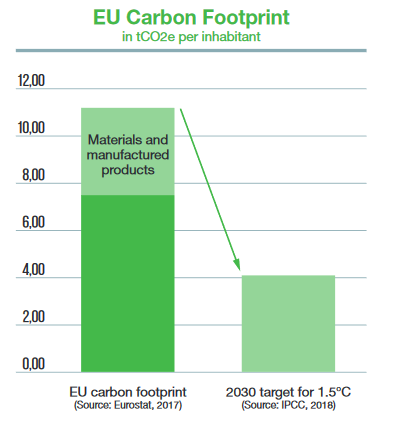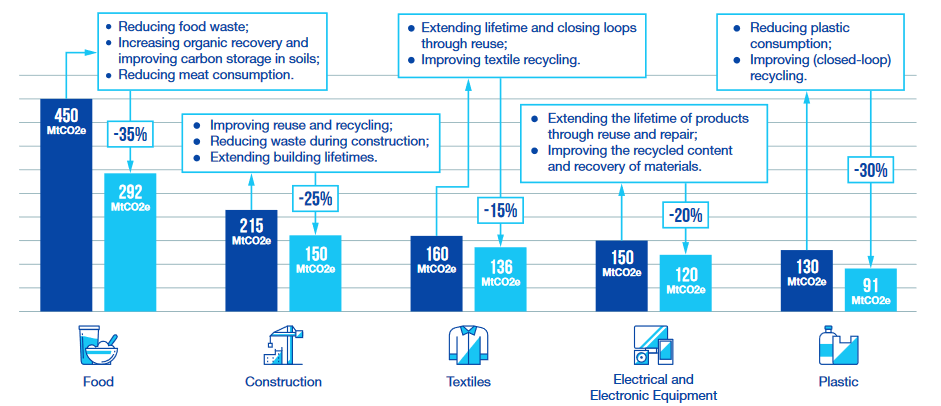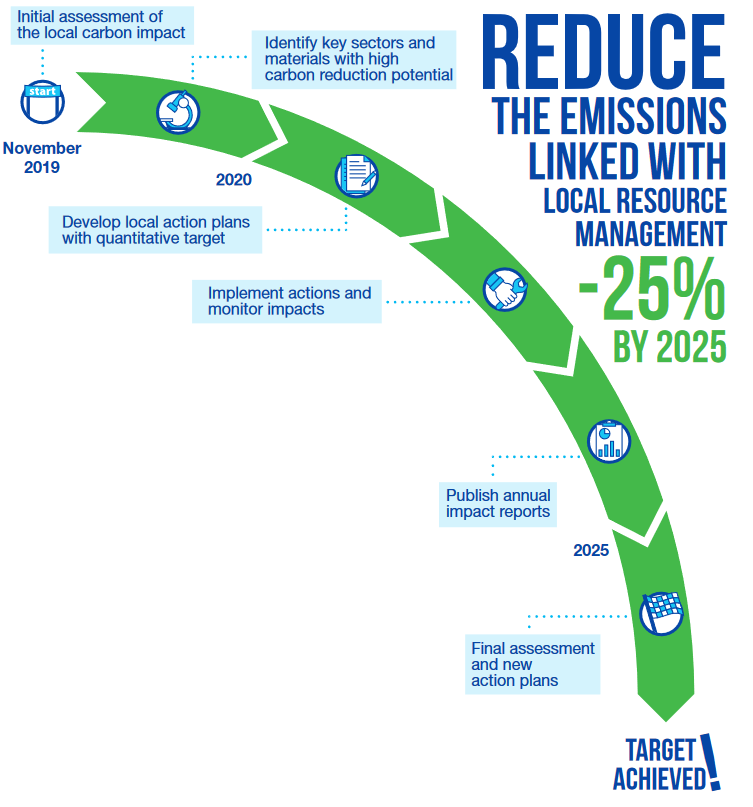Latest!
The report summarising the analysis of the carbon footprint of waste of Belfast is now available! Discover it here.
Together, let's reduce the emissions linked with local resource management by 25% by 2025
The context |
The Campaign |
The Cohorts |
Events |
Resources |
 The Context
The Context
 The Campaign
The Campaign
The campaign will run from November 2019 to November 2025, seeing ACR+ members taking steps at their level to reduce the carbon emissions linked with local resource management by 25% by 2025.
 The Cohorts
The Cohorts
ACR+ members are joining the campaign in different waves - the so-called cohorts. For several months, the participating territories collect data to identify key sectors and materials with high carbon reduction potential and draw effective action plans. The data collected are then analysed using the Carbon Metric International. Individual reports and a cross-comparative analysis will be published at the end of this first stage for each cohort.
 Events
Events
- 05 October 2021: results of Cohort 1 presented in the workshop "Debating the Pros and Cons: Is the waste sector ready to go beyond weight-based targets?" of the ISWA World Congress 2021
- 28 October 2020: Applying the Carbon Metric International to local level - The example of Pays de la Loire
- 19 November 2019: Launch of the More Circularity, Less Carbon campaign
 Resources
Resources
- "More circularity, less carbon" manifesto
- Cohort 1
- Cohort 2
- Carbon Footprint of Waste of Ireland
- Carbon Footprint of Waste of Odense
- Carbon Footprint of Waste of Navarra (English | Spanish)
- Cross Analysis of the Second Cohort: full report | executive summary
- Cohort 3
For more information or to join the campaign, please send an email to This email address is being protected from spambots. You need JavaScript enabled to view it.
*Sources: Deloitte, 2016, Circular economy potential for climate change mitigation; Eurostat, 2017, Emissions of greenhouse gases and air pollutants from final use of CPA08 products; Material Economics, 2018, The Circular Economy - a Powerful Force for Climate Mitigation ; Ellen MacArthur Foundation, 2017, A new textiles economy: Redesigning fashion’s future; IPCC, 2018, Global warming of 1.5






 EU carbon footprint of several key sectors - ACR+*
EU carbon footprint of several key sectors - ACR+*